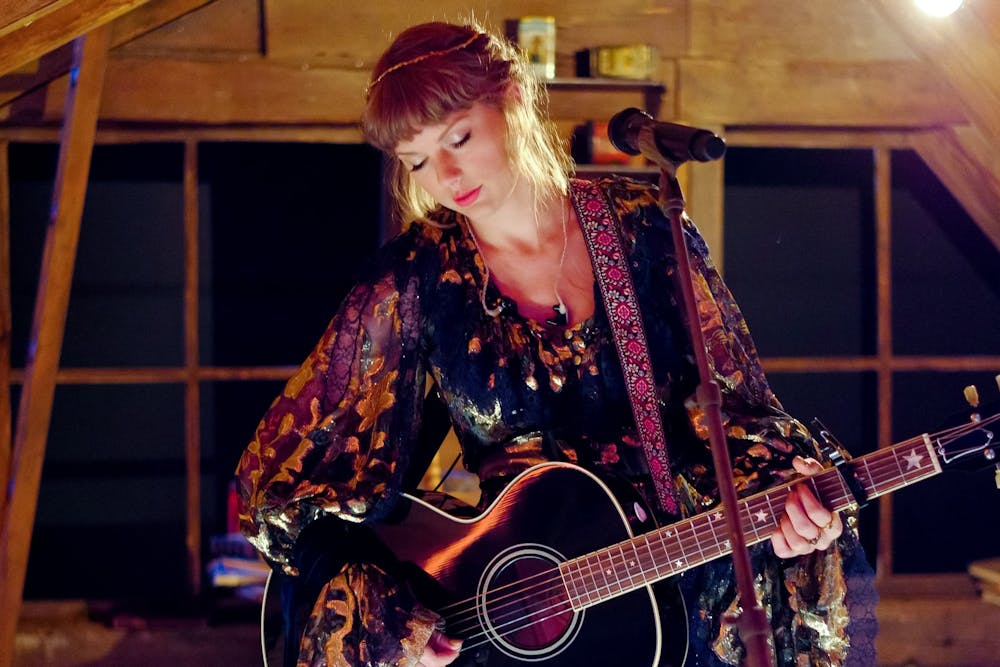If you Google the phrase “Gaylor Swift,” you will be greeted with 261,000 (and counting) results — Reddit communities, Rolling Stone articles, exclusive membership-only websites, Youtube video essays, comprehensive guides, blogs and a 94-slide Canva presentation, all dedicated to one thing: a fan-theory that Taylor Swift, the critically acclaimed songstress, is secretly a part of the LGBTQ+ community.
Every time Taylor Swift or Taylor's management team, “Taylor Nation,” makes any announcement regarding new music, there seems to be an uptick in discussion surrounding this theory.
Starting with the release of her fifth studio album “1989” and the parallel formation of her infamous “Girl Squad,” rumors of a more-than-platonic best-friendship with model Karlie Kloss, a bond that came to be known as “Kaylor,” began to spread like wildfire.
With Swift’s five subsequent albums, including her most recent release, “Midnights,” Swifties continue to find more “evidence” to prove that Taylor Swift is queer. Some fans believe that Swift is continuously dropping hints referring to her sexuality and potential “coming out,” whether it be through her songwriting, alleged lyric switches during performances or colorful Instagram posts.
For years, Swift has been held to the narrow-minded and sexist stereotype that she only writes songs about breakups and boyfriends. Being one of the most highly publicized artists of the 21st century, the media has never failed to intrude on Swift’s private relationships and exploit them for all of the world to see. Nevertheless, Swift has remained transparent about who she is with. For the last six years, Swift has been in a serious relationship with actor Joe Alwyn.
In a 2019 interview with Vogue, Swift said, “I didn’t realize until recently that I could advocate for a community that I’m not a part of,” but this does not mean that she is stuck in a concrete box of heterosexuality for all of eternity.
Taylor Swift could be a member of the LGBTQ+ community. However, Taylor Swift could just as likely be straight and an ally as she has previously identified and continues to be.
Pablo, the Don, a 26-year-old nonbinary music critic, also agrees with the notion of thinking that Taylor might be queer, but does not agree that theories should be spread online.
“Do I think people should be turning it into series and videos on the internet for people to divulge and discuss? No,” Pablo says. “But that is just my opinion on how I feel about openly discussing queerness when no one has ever confirmed it.”
August Tulecki, a 19-year-old student from California, believes that people’s desire to make Taylor Swift a lesbian icon is directly related to her audience's needs. A lot of the people who listen to her are young women that are frustrated by their experiences with men and living in a patriarchal society.
“I realized I was a lesbian in 2020 after dating a man that was absolutely insufferable and using Fiona Apple’s ‘Fetch the Bolt Cutters’ to explain and cope with my feelings. I do the same thing with Fiona Apple that Swifties do with Taylor Swift,” Tulecki says. “I mirror my pain as a lesbian with the pain that Fiona Apple portrays in her music. A pain so specific and intimate that it can only belong to ‘us.’”



